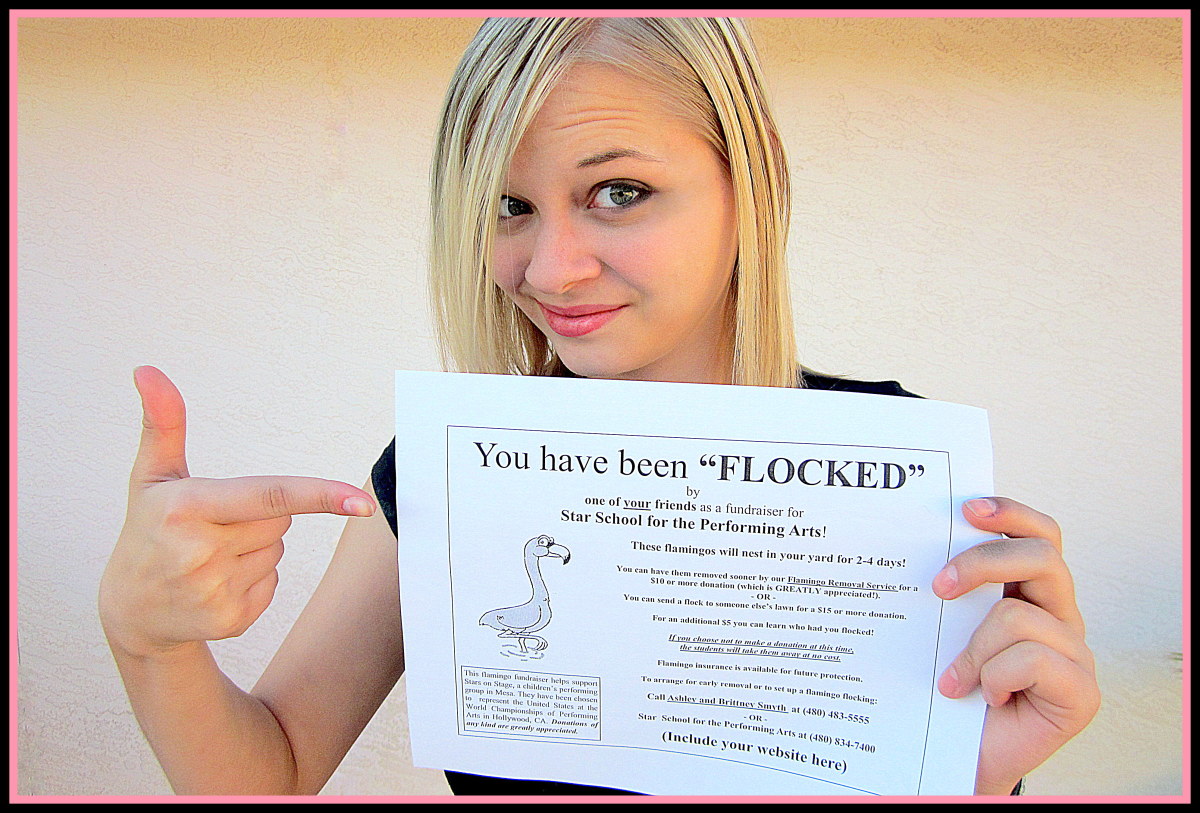So You Want to Run a Nonprofit Organization?
Want to save the world?

How to Become a Nonprofit Director
So, you've decided that the corporate rat race is not for you. You want to do some good in the world, save the planet, work for the children, or at least you want to be able to tell the Miss America judges that's what you want to do when you win the pageant and go to school on those big fat scholarships they give you.
Forgive my cynical tone. I've been working in the nonprofit sector for three decades. I've been a program director, department chairman, front line staff member, executive director, founder and board member of more nonprofit than I can quite remember at this point in my life. I've started five organizations from scratch or at least helped. I was team leader more often than not and built organizations from the ground up, found funding for them, organized boards and led community initiatives in support of their missions.
I know whereof I speak.
It is a fine thing to want to save the world. I've been doing it for more than 30 years and still haven't managed it. I do wish you luck though. You're going to need some things first before you will quite be ready to take over the help. It can take almost as long to acquire these tings as it does to get a medical degree.
First, at absolute minimum, you'll need a bachelor's degree in a "related field". Related to what you ask? Related to whatever nonprofit endeavor you intend to pursue. If you plan to go into environmental nonprofit work, a degree in environmental science, public policy or social work is called for. For some reason social work degrees seem to be related to everything. I built my nonprofit career on a communications degree with a minor in phys. ed.. Turns out a whole lot of nonprofit work is about being able to deliver an effective message about why you need money to people who actually have it and sometimes give it away. Degrees in health and public administration can open doors in the nonprofit sector, especially if you attend a notable institution.
Being a nonprofit director calls for all the business skills of a corporate raider and some unique skills they don't teach in business school. Remember you have to deal with donors, clients, board members, journalists and staff members all of whom think that, because this is a nonprofit organization you ought to be working for free.
You'll also need experience working in some dark corner of the nonprofit sector and a track record of not getting fired. On your resume' when you apply for the big job, your experience should end pretty much with cancer being cured, the homeless all safely ensconsed in homes and the environment preserved for future generations.
And speaking of track records, you should also have raised tons of money for your causes. When hiring an executive director, nonprofit boards like to get someone who can also double as a fund-raiser, that way they don't have to hire development staff. In fact, getting a development job can give you a leg up toward becoming an executive director. That's why a lot of EDs get nervous when the board hires a Development Officer, because they know that these guys, if successful, can cause boards to wonder why they need the old ED.
Surviving a stint as a Development Director is a neat trick. If things fall apart, be prepared to take the blame, even if you were acting under direct orders from the ED and the board. Having a development director makes an executive director nervous. Working with a DD feels too much like training your replacement. Try to get a lot of different kinds of experience within a single organization if you can. Boards want you to have a broad range of nonprofit experience, but they don't want someone who has worked for a lot of different organizations because it looks like you can't hold a job.
Internships and volunteer opportunities help you get inside successful nonprofit organizations. They love people they don't have to pay. Think of an internship as school for which you don't have to pay. When your time runs out, if you've made yourself indispensible to the organization they might offer you a full time job and from there, you may be able to advance to a leadership role.
Develop executive director skills by taking on tough projects while you are serving as a lower level employee. Demonstrate that you can motivate people, make decisions and manage your department's finances. Demonstrate that you can bring in donations and your rise within the organization will be assured.
If you have your eye on a position in a different organization from where you are, devote yourself to finding out all you can about that organization. Find their website. Read their mission and vision statements. Curl up with several years worth of annual reports, back newsletters and fund-raising appeals. Download the organization's annual IRS Form 990 and compare it to those other NPOs in the same field that are more and less successful. Study the organization's history. Get to know the board members. Most can be found with a simple Google search. Get to know the history of the organization and of its officers.
Finally, in preparing to apply for a director's job, take every opportunity to attend training seminars and workshops about nonprofit management that you can get into. Get NSFRE certification as a fund-raiser. Cultivate a circle of mentors and friends in the nonprofit sector. Many are very open and willing to help you figure out how the system works if you're willing to listen respectfully.
One last warning. They don't call them nonprofits for nothing. Most nonprofits offer low pay, minimal benefits and often expect you to sing for your supper. The competition for those $200,000 a year nonprofit exec salaries is every bit as fierce as it is for private sector jobs in that price range. Most boards tend to believe you should be sacrificing a little in order to work for a nonprofit, unless they see you as one of themselves. If they do, then you can count on a little better treatment, some benefits and even some retirement moeny. If the board doesn't see you as a member of their social class, however, don't count on landing the same compensation package.
If you want to save the world, you should be prepared to sacrifice. Things that really make a difference tend to be hard work, messy and sometimes downright dangerous. You make a choice when you enter the field as to whether you're going down the hard work and heartache route or the board rooms and thousand dollar a plate dinners route to nonprofit success. Like poet Robert Frost once said, "I chose the road less traveled and that has made all the difference."
But as the Grail Knight in Indiana Jones and the Last Crusade cautioned, "You must choose.....wisely!"








